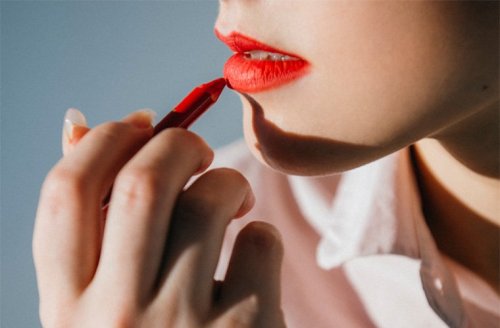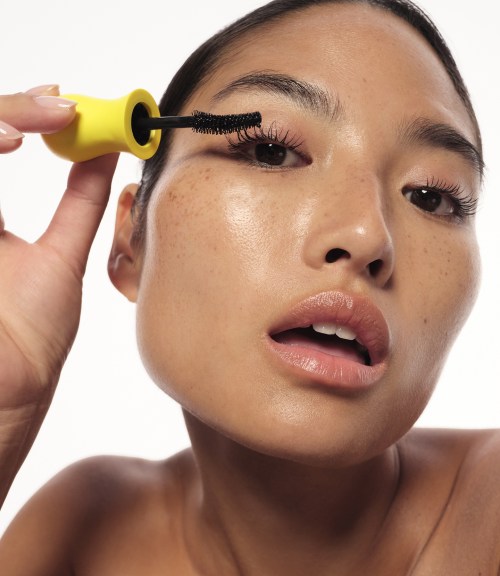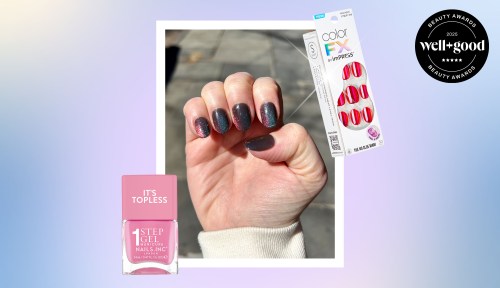Well+Good is your healthiest relationship, hooking you up with the best, most interesting things/people/food in wellness. And nothing gets at this concept better than the plus-sign in our logo, which acts like a gallery window where we showcase the most exciting, transformative objects and ideas that add wellness to your life. And this week we’re spotlighting the undeniable rise of…the demand for clean beauty products.
Parabens became passé a while ago. Microbeads were completely banned last year. And, even though there are still hundreds (if not thousands) of untested and potentially toxic chemicals in personal care products, a national health revolution is stirring that’s going to shake up the beauty industry and your beauty bag, as we know it—and in a very good way.
Perhaps you’ve noticed (from reading Well+Good) that all-natural beauty products are no longer limited to the unglamorous corner of your natural foods store? Ultra-chic—and totally clean—skin-care and cosmetics brands are increasingly popping up everywhere, from online natural beauty retailers to indie beauty boutiques (like Detox Market and CAP Beauty), at chainlets like Follain and Credo, and in mega-stores like Target.
And it’s no longer being brushed off as something only your hippie sister uses. I mean, we’ve had hundreds of super-cool women turn out to our natural beauty events in Los Angeles and New York. And Gwyneth Paltrow (who always seems to have her finger on the wellness pulse) is in on the trend, stocking only non-toxic beauty products on Goop and launching her own clean collections.
“Everybody is moving towards this idea of ‘How can I feel good and be healthy and live a good life,'” Paltrow tells us. “It doesn’t seem ethical to me that there’s no regulation and that [the industry] can put something that’s a known carcinogen in women’s personal care products. The best way to change the market is as a consumer. People want non-toxic products and are starting to understand what’s in so much of the things we use and how detrimental they can be to our health and reproductive system.”
And once people realize what’s in the jars, tubes, and bottles that line their shower shelves and makeup bags, they’re speaking up. From bloggers to members of Congress, there’s a clean beauty movement in the works—with the goal of keeping consumers safe from harmful chemicals in the products they reach for every day.
Here’s what you need to know—and how you can help make it a reality.
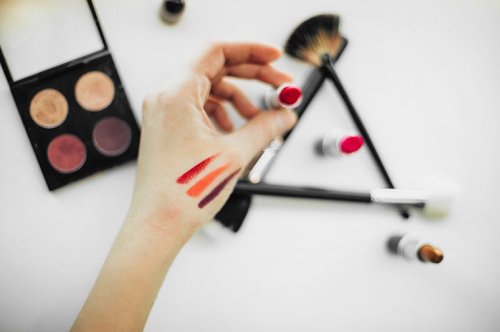
There’s no governmental task force making sure ingredients used in beauty products are safe
A study done in August of last year by Harris Poll (and commissioned by beauty brand Kari Gran) found that nearly 60 percent of over 1,100 women read beauty product ingredient labels prior to purchase, and 54 percent of women claim it’s important for their skin-care products to be all-natural.
And yet, in the US there’s no governing or independent body inspecting chemicals and ingredients that go into personal care products. We repeat: No one is looking at the ingredients in your moisturizer or makeup to make sure they’re safe and won’t cause health issues.
Safety of skin-care products is something many of us have just assumed. A survey of 800 general election voters this year by The Mellman Group and American Viewpoint found that nearly seventy percent of consumers believe that chemicals in personal care products have been “cleared” by the government. Clearly there’s a disconnect.
Here are a couple facts on the state of the beauty industry: The Food & Drug Administration, which plays a role in approvals for prescription drugs, doesn’t have the legal authority to approve cosmetic products and ingredients before they go on the market.
And no major law has been passed to regulate the hundreds of thousands of products that we use daily since the 1938 Food, Drug, and Cosmetic Act, which required companies to deem their product as safe before it was sold to consumers.
So that just means it’s up to beauty companies to use the honor system and do the testing. And we’re simply supposed to trust their judgment despite there not being a set standard to follow or specific tests to conduct (except in the case of sunscreen). Unsettling, to say the least.
Meanwhile, across the pond, the European Union has banned more than 1,300 toxic ingredients from use in personal care products. Canada also has strict laws surrounding their cosmetics, currently prohibiting over 500 ingredients on what they call a “hotlist” of toxic chemicals.
In the U.S.? Eleven harmful ingredients are banned from cosmetics.
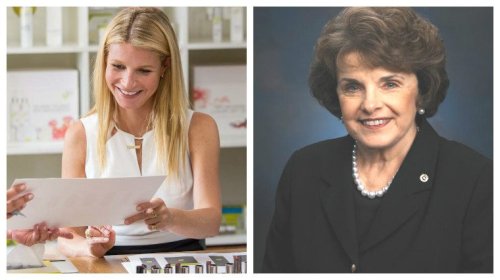
Steps toward the regulation of what’s in your beauty products, and the Personal Care Products Safety Act
An attempt at regulation finally came in April 2015, when Senator Diane Feinstein (D-CA) proposed the Personal Care Products Safety Act, which calls for the annual review of five potentially toxic ingredients and the appropriate concentration restrictions (if any) they require. If they’re found unsafe for human use, companies are to immediately stop formulating their products with said ingredient.
According to Feinstein’s office, the main component of the bill is an ingredient review by the FDA, which has no authority under current law. It would also require companies to report any averse events to the FDA, which they’re currently not incentivized to do.
Here’s why that would be helpful: Under Feinstein’s bill, the company that produces Wen hair products would be required to report the 21,000 adverse consumer complaints it received (which included scalp irritation and hair loss) to the FDA (something they don’t have to do under the current law). What happened in this instance is that the FDA only became aware of these problems with the product as they were doing an investigatory process looking at manufacturing facilities—since right now, companies don’t have to report to the FDA. Troubling, to say the least.
A main part of Personal Care Products Safety Act would look closely at five potentially toxic ingredients a year, to start chipping away at safety data for thousands of cosmetic ingredients.
The Act would also require complete label information on every product, as well as listing them online. A lot of people shop for personal care products online, but it’s not necessarily the case that the ingredients are listed online, notes Feinstein’s office. Under the bill, companies would be required to register with the FDA, submit safety information, and follow a set of good manufacturing practices that the FDA would provide them.
So where does the Act stand right now in Congress? The bill’s supporters are pushing for a hearing in the Senate HELP Committee this fall.
The good news is that it has bipartisan support, and mega companies like Johnson & Johnson, Proctor & Gamble, Revlon, Estee Lauder, and Loreal are on board—which is surprising considering how many chemicals they currently use in beauty products would likely be banned. Nonetheless, it shows that the bill has serious, broad appeal, not to mention the potential to have a major impact on the products we use.
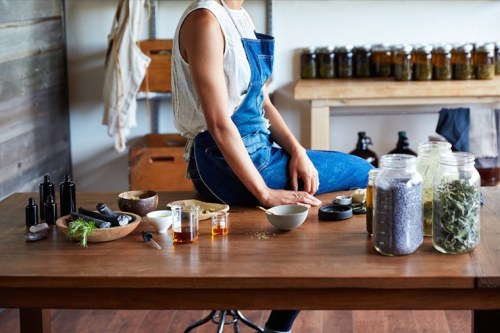
Signs of a Clean Beauty Revolution
Despite the incredible efforts of Feinstein’s office, laws can take a long time to go through Congress. This is why there’s something else happening, and it’s happening among beauty brands, distributors, wholesalers, cosmetic manufacturers, and others in the industry: a clean beauty revolution.
Spearheaded by Ashley Prange, the founder of organic, all-natural cosmetics brand Au Naturale (who previously worked in law and regulated uranium mines, of all things), the movement aims to have the same regulations that surround food to be applied to personal care products (your body absorbs roughly 60 percent of what goes on it, after all).
“The groundwork is being made for personal care products to take the same sort of path organic food took.”
“I want to educate people—that’s my primary goal right now,” says Prange. “The first goal would be education and consumers engaging and understanding what’s happening [in the US] in contrast with places like Europe, where there actually is relevant regulation and a continuing conversation in safety.”
“Eventually I’d like legislation signed and our efforts to come to fruition and people can be like, ‘Great, I actually feel safe with the personal care products,'” Prange adds. “I want people to know someone is watching out for them in a regulatory manner.”
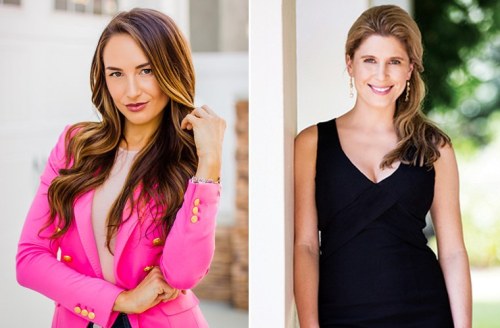
In March of this year, she launched a social media campaign that called for people to sign a clean beauty petition so Prange could go to Congress and lobby with support. Armed with more than 8,000 signatures, she went to D.C. with organic beauty blogger Amanda Jo (also known as Organic Bunny) and met with offices in the Senate and with House Speaker Paul Ryan’s office to learn where Feinstein’s Act stands and what’s happening with regulation in beauty products in general.
“While we’re extremely supportive of Feinstein’s bill, we wanted to create something to achieve momentum as we wait for it to pass,” says organic advocate, Jo.
That something? Prange and her clean beauty army are working on making a label to be stamped onto beauty products and cosmetics that shows a product is safe and non-toxic, much like the USDA Organic label does for food.
“I have over 100 people involved right now,” explains Prange, which includes manufacturers, wholesalers, and brands. “The groundwork is being made for personal care products to take the same sort of path organic food took. What happened with USDA Organic is that a trade organization was set up by the industry coming together. They created a label that was then adopted into law in a farm bill three years later.”
“One woman couldn’t have a baby, and after they cleaned up their beauty routine they got pregnant. I urge my followers to send me their stories because I want to read them to Congress.”
Not only that, but Prange is also working with Gay Timmins—the advocate behind the State of California obtaining organic standards for personal care products. Powerful forces are at work, and they plan on revisiting Washington every few months to keep the conversation alive and the momentum going. Beautycounter is active in the lobbying game as well, and urges their consumers to email Congress about the need to prioritize safe beauty.
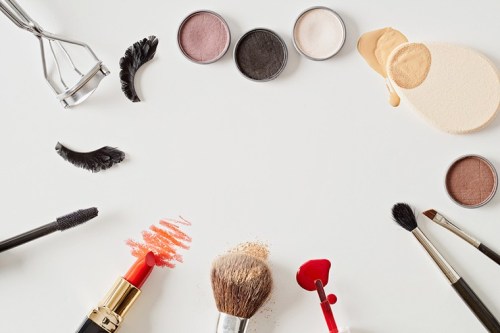
The search for a “clean” standard in murky beauty waters
When you ask someone what ‘clean’ means to them in terms of beauty products, you’re bound to get pretty diverse responses. The fact that so many products deem themselves “organic,” “all-natural,” and/or “clean” despite not being held to a regulated standard only adds to the confusion. Hence why Prange’s movement—like Feinstein’s bill—will take a while to implement.
“What causes a lot of friction is that brands like mine want a very strict standard for organic, since we’re making very pure and fresh products,” says Prange. “Then another brand comes in saying they’re natural, but everyone has a disagreement over what that means. If this were easy to do, it would have happened twenty years ago.”
Preservatives are another tough obstacle. With the taboo surrounding parabens, beauty brands have started using alternatives—some of which are potentially toxic themselves. “It’s a hard part of the conversation,” says Jo. Right now, “one company says a preservative is okay while another disagrees.”
Right now, one company says a preservative is okay while another disagrees.
The key is to find some low-hanging fruit in terms of what non-toxic means, says Prange. “We need something we can all agree on, so we can go on to tackle more challenging issues. It will not happen overnight, but there’s so much goodwill here and everybody wants to see something happen, so I know it will.”
Prange’s band of supporters are in the process of setting a basic standard of what safe means across the board. Their basic desire is to provide transparency to the consumer so they know a product isn’t going to harm them. “[We’re going to have] different facets of the label, but the effort is to give people a product they can trust to be safe,” says Prange.
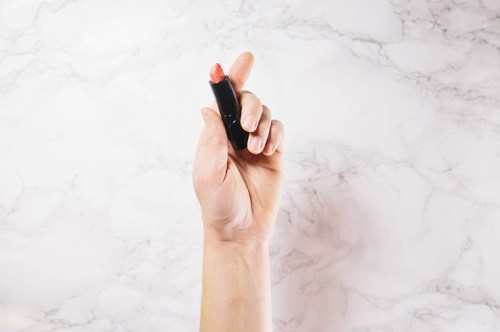
What still needs to be done
The power is really in the hands of consumers, like yours. “I think tastemakers are spelling it out for [consumers],” says Prange. “You have a really educated consumer base. Some people are having issues with their skin and educating themselves, while others are looking to bloggers, YouTube, and influencers and picking up on that message and telling their friends.” This is why a clear-cut label that indicates a product is safe for use is so important.
“I get so many emails from girls and women telling me about their health problems,” says Jo. “One woman couldn’t have a baby, and after they cleaned up their beauty routine they got pregnant. I urge my followers to send me their stories because I want to read them to Congress—they’re so inspirational and help communicate that it’s a real problem.”
As the new frontier in beauty is brewing, the best we can do is continue reading labels and educating ourselves on what’s actually good for our skin. Despite all the murkiness in the beauty market, one thing’s for sure—there are now plenty of amazing, all-natural brands out there looking to provide us with products for a safe beauty routine right now. (We cover them constantly on Well+Good—see our favorite new ones this month here.)
And, eventually, you’ll be able to primp without worrying if someone’s looking out for you or not. To join the revolution, you can sign Prange’s clean beauty lobby here. For the Feinstein regulation, you can sign this petition and call your local Congress member and ask that “The Personal Care Products Safety Act” receive a hearing from the HELP (Health, Education, Labor & Pensions) committee in the Senate.
Leave a note in the Comments, below, with any questions or concerns about the Act or finding safer beauty products.
Looking to make some natural beauty swaps? Read up on some pointers for finding the best body oils for your skin, our fave natural deodorants, and the 11 best natural sunscreens we’ve found.
Sign Up for Our Daily Newsletter
Get all the latest in wellness, trends, food, fitness, beauty, and more delivered right to your inbox.
Got it, you've been added to our email list.
